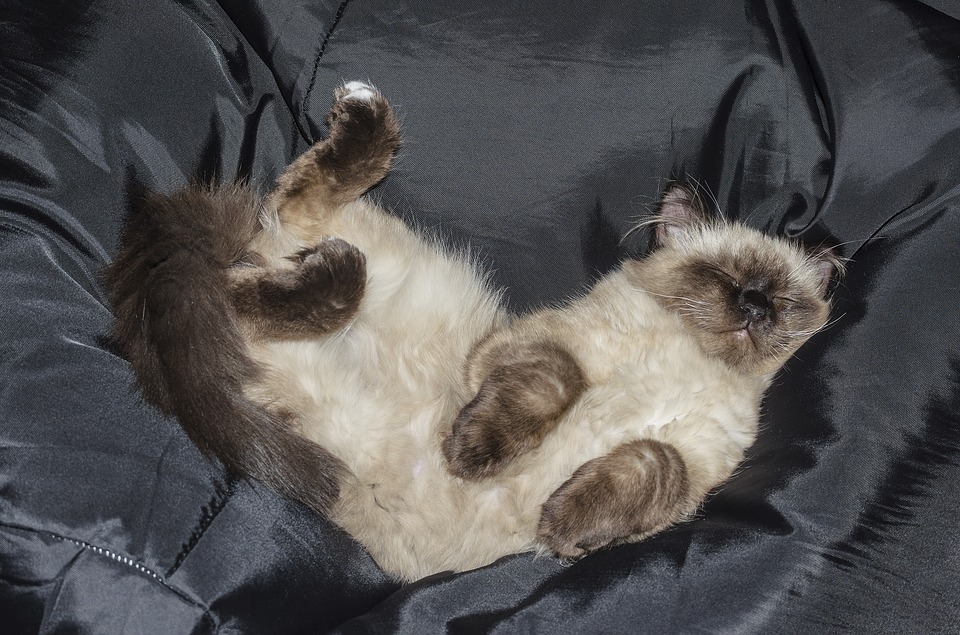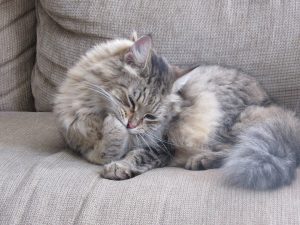In the previous blog I talked about night-time waking in our senior dogs, but if you are an owner of a senior cat and being awoken in the middle of the night by yowling, you are not alone.
Night-time waking in our senior cats is a common complaint. In cats, this is often reported as aimless wandering and yowling during the night. In a study by Landsberg (2013), 40% of senior cats (cats over 11 years old) have reported issues with restlessness and accompanying night waking. The older the cat, the more likely they are to demonstrate these behavioral changes, with 50% of cats 15 years and older showing such changes.
Potential causes of these behavioral changes in geriatric cats are numerous. Pain (commonly arthritis pain), systemic hypertension, hyperthyroidism, reduced vision or hearing and cognitive dysfunction syndrome are the most common causes. Many times owners have been inadvertently reinforcing the behaviour by responding to the night-time yowling by either feeding or petting the cat.
If your cat is yowling at night, the first step is a visit to your veterinarian to determine the cause. If any of the above listed conditions are determined, a treatment plan will be put into place. Hyperthyroidism, hypertension, arthritic pain and other common senior cat diseases can be relatively easily diagnosed and managed. For many cats, therapy for those problems may be all that is needed to put a stop to the nighttime waking. For a portion of cats, the yowling may continue as a habit or because your elderly cat also has cognitive dysfunction (senility).
A diagnosis of feline senility is based on identifying clinical signs that are compatible with cognitive dysfunction and eliminating other causes of such signs. Besides altered sleep-wake cycles such as night waking, cats with cognitive dysfunction may also have spatial confusion. This is seen as wandering, staring, or going to unusual places. In addition, it is common to notice increased anxiety, irritability or restlessness in these cats.
Unfortunately, as with cognitive dysfunction in dogs or Alzheimer’s in people, there are no known cures for feline senility. In addition, most drug therapies that are used for this disease in our canine or human counterparts, have not been evaluated for safety and efficacy in our cat population.
For all causes of night time waking, symptomatic treatment such as the use of a sedative or anxiolytic can be used to decrease anxiety and facilitate sleep at bedtime. Environmental modifications that may help decrease anxiety in you cat should be implemented. This may be to limit your cat’s access area to a single room where all their needs (resting place, food, water, little box, companionship) are met.
Having a cat who is yowling at night is hard on the whole family. Sometimes treatment can be straight forward and other times it can be quite frustrating. Regardless, if your feline companion is showing signs of restlessness or anxiety and waking you up in the middle of the night, start with a visit to your veterinarian.
Dr. Loretta Yuen D.V.M


